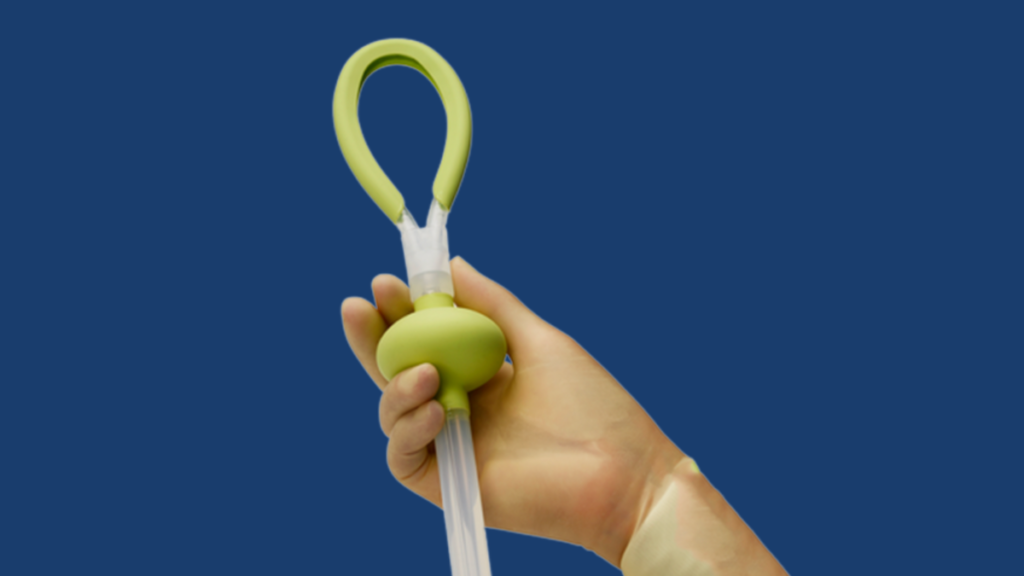
A new study published in Obstetrics & Gynecology, presented real-world data supporting the efficacy of the JADA System in treating postpartum hemorrhage (PPH). JADA is an intrauterine vacuum-induced device aimed at controlling abnormal uterine bleeding post-childbirth. The peer-reviewed RUBY study confirmed that the medical device rapidly and effectively controlled PPH, reinforcing earlier clinical trials. The JADA System, was originally created by Alydia Health, and acquired by Organon, a global healthcare company specializing in women’s health, in 2021.
Postpartum hemorrhage (PPH), or abnormal postpartum uterine bleeding, is one of the most common complications of birth and may result in potential emergency intervention, such as hysterectomy or red blood cell transfusion. In some cases, it may even result in maternal death. PPH causes 70,000 maternal deaths globally every year, and 12% of maternal deaths in the U.S. (2017-2019). Severe maternal morbidity (SMM) rates have increased in the U.S., with PPH as the most common cause (2.7% in 2000, 4.3% in 2019).
“PPH is a potentially life-threatening obstetric emergency that can occur after childbirth and requires timely medical intervention. Appropriate management of abnormal postpartum uterine bleeding is critical to minimize the potential clinical consequences of PPH and its associated severe maternal morbidities, such as the need for blood transfusions, ICU admission or hysterectomy,” said RUBY Study lead author Dena Goffman, M.D., a maternal-fetal medicine subspecialist, and professor and vice chair for quality and patient safety in the Department of Obstetrics and Gynecology at Columbia University Irving Medical Center in New York. “The new study, which included a larger population than the pivotal trial, showed how the device is being used outside of a controlled clinical trial environment. The results indicate that the intrauterine vacuum-induced hemorrhage control device is an important tool for PPH management.”
The RUBY study, an observational post-market review, scrutinized 800 patient records across 16 U.S. hospitals between October 2020 and March 2022. The primary effectiveness outcome, which was treatment success, was achieved in 92.5% of vaginal births and 83.7% of cesarean births. Treatment success was defined as control of bleeding without the need for treatment escalation or recurrence. The study also featured an exploratory post-hoc analysis that examined the link between severe maternal morbidities and cumulative blood loss before JADA insertion. The findings indicated that lower blood loss before JADA treatment was associated with lower rates of severe maternal morbidity.
For instance, in cases with less than 999 mL of blood loss prior to device insertion, only 12% of vaginal births required any red blood cell (RBC) transfusion, compared to 76% when blood loss ranged between 2,000–2,999 mL. These results emphasize the importance of timely intervention for controlling blood loss.
Other secondary outcomes of the study, such as time to bleeding control and total blood loss, also supported the effectiveness of the JADA System. For example, bleeding control was achieved within five minutes for 73.8% of vaginal births and 62.2% of cesarean births following JADA insertion.
“Severe maternal morbidity rates in the U.S. are rising, and PPH is recognized as a major cause of some of these morbidities,” shares Patricia Carney, M.D., FACOG, Organon Medical Affairs. “While severe maternal morbidities occurred even at lower levels of blood loss in this study, higher rates of morbidity were associated with higher levels of blood loss prior to JADA treatment in conjunction with other interventions that may have been used. These data shed light on the importance of appropriate control of blood loss, and it’s encouraging that the RUBY study reinforced the JADA pivotal study results in a real-world setting.”
Adverse events recorded in the RUBY study were consistent with expectations for managing an obstetric emergency. Only three serious adverse device events were possibly linked to the device or procedure, all of which were resolved with treatment.
Organon’s JADA System, initially cleared by the FDA in August 2020, appears to be an essential tool for effective PPH management. Its role is particularly vital considering PPH’s contribution to maternal deaths globally and the increasing rates of severe maternal morbidity in the U.S.



